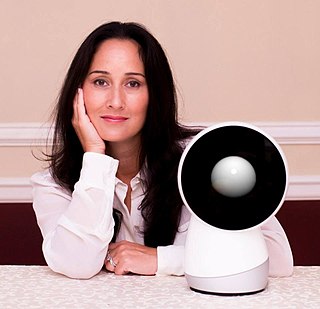A Quote by Neil deGrasse Tyson
Robots are important also. If I don my pure-scientist hat, I would say just send robots; I'll stay down here and get the data. But nobody's ever given a parade for a robot. Nobody's ever named a high school after a robot. So when I don my public-educator hat, I have to recognize the elements of exploration that excite people. It's not only the discoveries and the beautiful photos that come down from the heavens; it's the vicarious participation in discovery itself.
Quote Topics
Related Quotes
Essentially every scientist, when posed with the question, "If you want to get science knowledge from Mars, do you want to send a geologist or do you want to send a robot?" Well, the real answer is, you can send 100 robots for the price of sending one geologist, so let's send 100 robots to 100 different locations, and then we would all benefit. So that's the answer you would get. And I agree with that answer.
Some people think that, inevitably, every robot that does any task is a bad thing for the human race, because it could be taking a job away. But that isn't necessarily true. You can also think of the robot as making a person more productive and enabling people to do things that are currently economically infeasible. But a person plus a robot or a fleet of robots could do things that would be really useful.
The exploration of space: Be it by humans or robots, based on the best choice for the mission and the most efficient means to return the data and science sought. Most of the time, this will mean we send robots due to cost and danger. But sometimes, we will need the irreplaceable judgment and descriptive abilities of a person on the spot.
In 1968 when I was in high school I built a four-foot-tall remote control robot with pneumatic cylinders that operated his hands. My robot won first place at a science competition at the University of Alabama where my high school was the only African-American school represented. That was a huge moral victory.
A new study says by 2030 household robots will dominate every phase of our lives. The study says the No. 1 field for robot growth is medicine. That makes sense. Robots already perform well in surgery. That is, until there is a power outage. Then it's just a coat rack leaning over you as you bleed to death.

































